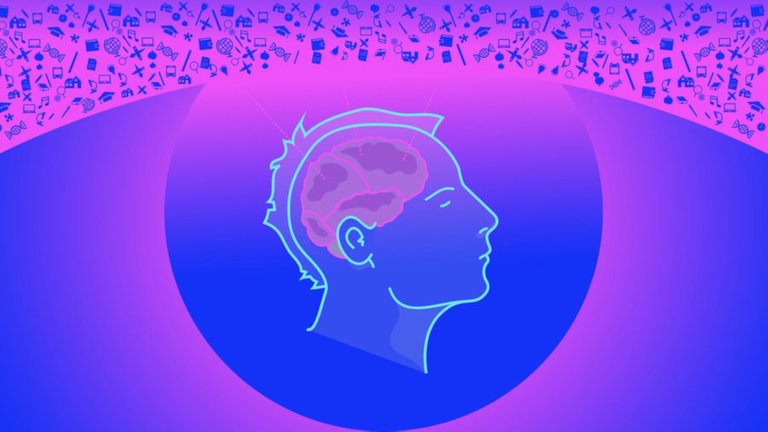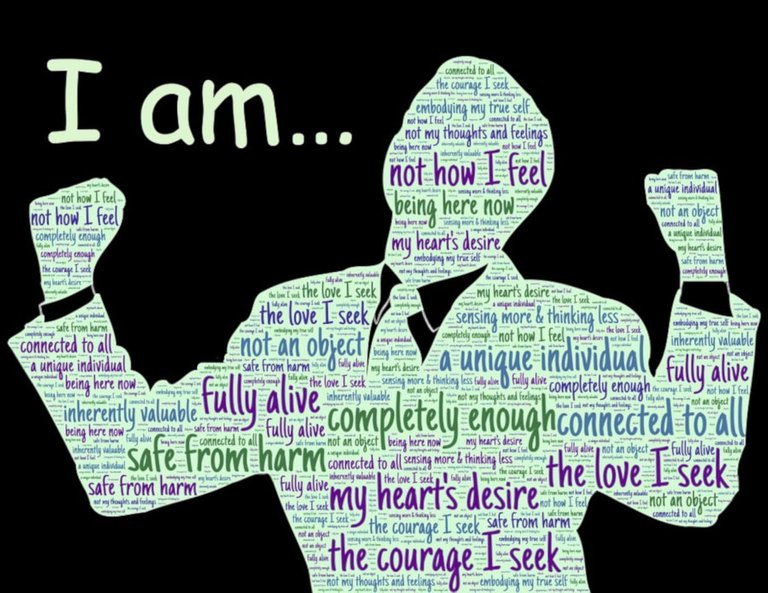Beyond Experience
In philosophy, science and in the lifes of all regular thinking people, there has been for ages the problem of consciousness; how, where and why does it exist?

source: Max Pixel
One thing is certainly true, and it may even be the only truth I can ever be sure of: I am conscious, I exist, cogito, ergo sum. No matter what else is true or false, I experience myself and the world around me, so my first person experience as myself in the universe is the ultimate truth upon which all other truths, and lies, are built. Even if the movie The Matrix is true, even if we're all the proverbial brain in a vat, that takes nothing away from that most basic of truths: I exist.
Just existing doesn't sound all that inviting though; my chair seems to exist to, but I'd never want to trade places with it as I'm rather attached to being able to consciously experience my existence, something I strongly suspect the chair incapable of. It lacks, at least as far as we're able to determine, that magical quality of being conscious. If one would ask "what would it be like to be a chair", the answer would be like "dead" or "nothing". It's not like anything to be a chair.
American philosopher Thomas Nagel published a famous paper in 1974 called What Is it Like to Be a Bat? in which he argues that materialist theories of mind omit the essential component of consciousness, namely that there is something that it is (or feels) like to be a particular, conscious thing. The chair has no conscious phenomenal experience of itself or its surroundings, whereas the bat has a mental model of its universe. It will differ radically from our own, as the bat navigates the world through sonar instead of vision; evolutionary biologist Richard Dawkins once postulated that bats, with their consciousness, could very well be able to perceive colors in a way unimaginable for us. So even if we would never be able to know what it's like to be a bat, we know it's like something to be one; the bat also consciously experiences its universe, and so does the dog, the bird, the snail, the worm...

Image by johnhain - source: Pixabay
Although there's no universally accepted scientific definition of "consciousness," it is widely agreed among most modern scientists that when talking about the hard problem of consciousness, it's all about how and why sentient organisms have subjective first person phenomenal experiences or qualia. For a materialist reductionist the challenge is to explain how consciousness is generated by, or emerges from physical processes in the brain and body. In his paper, Nagel attempts, rather successfully in my opinion, to refute this reductionism:
The paper argues that the subjective nature of consciousness undermines any attempt to explain consciousness via objective, reductionist means. A subjective character of experience cannot be explained by a system of functional or intentional states. Consciousness cannot be explained without the subjective character of experience, and the subjective character of experience cannot be explained by a reductionist being; it is a mental phenomenon that cannot be reduced to materialism. Thus for consciousness to be explained from a reductionist stance, the idea of the subjective character of experience would have to be discarded, which is absurd. Neither can a physicalist view, because in such a world each phenomenal experience had by a conscious being would have to have a physical property attributed to it, which is impossible to prove due to the subjectivity of conscious experience. Nagel argues that each and every subjective experience is connected with a “single point of view,” making it unfeasible to consider any conscious experience as "objective".
Nagel uses the metaphor of bats to clarify the distinction between subjective and objective concepts. Bats are mammals, so they are assumed to have conscious experience. Nagel used bats for his argument because of their highly evolved and active use of a biological sensory apparatus that is significantly different from that of many other organisms. Bats use echolocation to navigate and perceive objects. This method of perception is similar to the human sense of vision. Both sonar and vision are regarded as perceptional experiences. While it is possible to imagine what it would be like to fly, navigate by sonar, hang upside down and eat insects like a bat, that is not the same as a bat's perspective. Nagel claims that even if humans were able to metamorphose gradually into bats, their brains would not have been wired as a bat's from birth; therefore, they would only be able to experience the life and behaviors of a bat, rather than the mindset.
source: Wikipedia

source: Wikimedia Commons
Ultimately consciousness is defined best as the subjective first person phenomenal experience of sentient organisms... Or is it? If you ask Daniel Dennett, another famous philosopher whose work on memes and cultural evolution I like very much, there is no problem with explaining consciousness, as the subjective experience is an illusion of the mind. That I never really could get behind though. Yes, free will can be a necessary illusion as it is indispensable for us to have agency over our choices, or at least feel that way, in order to form a functional society, and our model of the world might not look at all like the world really is, much like the bat's model of the world; the mind is a bag full of tricks. But the fact that I consciously experience my existence, and can think about the ways my mind tricks me into experiencing existence one way or another, those are real.
I like David Chalmers' approach to the mind-body problem much more. He doesn't claim to have answers, but he does have a rather bold but logical proposition to solve the problem, which he has dubbed the hard problem of consciousness:
The hard problem of consciousness is the problem of explaining how and why sentient organisms have qualia or phenomenal experiences—how and why it is that some internal states are felt states, such as heat or pain, rather than unfelt states, as in a thermostat or a toaster. The philosopher David Chalmers, who introduced the term "hard problem" of consciousness, contrasts this with the "easy problems" of explaining the ability to discriminate, integrate information, report mental states, focus attention, etc. Easy problems are easy because all that is required for their solution is to specify a mechanism that can perform the function. That is, their proposed solutions, regardless of how complex or poorly understood they may be, can be entirely consistent with the modern materialistic conception of natural phenomena. Chalmers claims that the problem of experience is distinct from this set and that the problem of experience will "persist even when the performance of all the relevant functions is explained"
source: Wikipedia
Chalmers attempts to bridge the gap between Nagel and materialists like Dennett by taking the rather radical step of elevating consciousness to be a fundamental building block of the universe. To make consciousness one of the universe's fundamental features, much like spacetime and mass:
Some philosophers, including David Chalmers in the late 20th century and Alfred North Whitehead earlier in the 1900s, argued that conscious experience is a fundamental constituent of the universe, a form of panpsychism sometimes referred to as panexperientialism. Chalmers argued that a "rich inner life" is not logically reducible to the functional properties of physical processes. He states that consciousness must be described using nonphysical means. This description involves a fundamental ingredient capable of clarifying phenomena that have not been explained using physical means. Use of this fundamental property, Chalmers argues, is necessary to explain certain functions of the world, much like other fundamental features, such as mass and time, and to explain significant principles in nature.
source: Wikipedia
There's much more to be said about this of course, but I hope everyone takes the time to think about these questions. Meditate on them. Some truths are only to be found in your personal universe; in that sense you really are the universe trying to understand itself. And that self is not a static thing, it's more like a process, a constant flow of subjective experiences that are somehow attached to the self or experienced through the self. And if consciousness is a fundamental feature of the universe, are we then all part of the same proto-consciousness? Could we say: "I think, therefore we are (cogito, ergo sumus)?"
Hard Problem of Consciousness — David Chalmers
The above is a redacted version of a post I originally released on Steemit in December 2018
Thanks so much for visiting my blog and reading my posts dear reader, I appreciate that a lot :-) If you like my content, please consider leaving a comment, upvote or resteem. I'll be back here tomorrow and sincerely hope you'll join me. Until then, stay safe, stay healthy!

Recent articles you might be interested in:
| Latest article >>>>>>>>>>> | Good Guy With A Gun |
|---|---|
| Broken Promises | Wealth Perception |
| Take America Back? | Experience Life |
| Moon Landing Hoax | Natural Equality |

Thanks for stopping by and reading. If you really liked this content, if you disagree (or if you do agree), please leave a comment. Of course, upvotes, follows, resteems are all greatly appreciated, but nothing brings me and you more growth than sharing our ideas.
I led some of my students through a book study of Dr. Rupert Sheldrake's Science Set Free last year. In that book, he hypothesizes that all self-organizing matter has consciousness, and that the more complex the 'organism' the more complex (or extensive, or capable) the resulting consciousness.
By "self-organizing matter", he does not mean organic matter, but rather anything that self-assembles itself into some organizational structure. So, crystals and trees would meet the criterion, rocks and chairs would not.
As would elements like atoms and their constituents, electrons, "self-organize" yet none of that indicates or explains how consciousness is the product of the grouping, or how consciousness is non local and outside time, so bound by neither of the factors which binds all phenomena we observe in all these self organizing "structures", all except Awareness and Consciousness.
Nonduality. There's no experiencer and experience.
Ergo to your nonsense and idiocy of self of a self in a self attached with processes in of and by a self, nope.
Lololol! The racist asshole "grows" by sharing ideas!
Lol! I've seen you here for years, probably hundreds of instances, and dozens of comments from people under your posts you never even bothered to vote, let alone read or appreciate, or respond to, while I've never seen you approach a new idea or exemplify anything as far as growing because of sharing in new idea, nope once again.